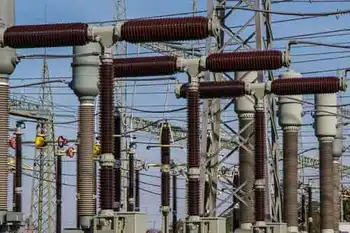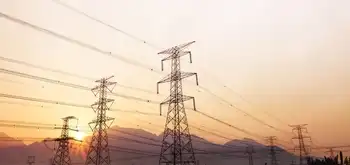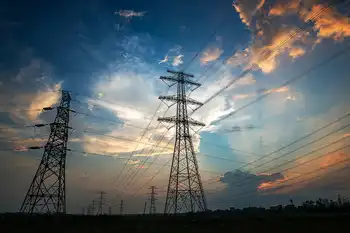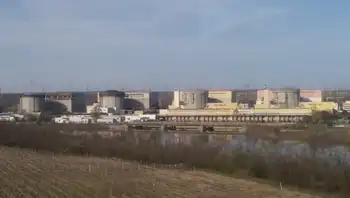EasyPower Webinars deliver expert training on electrical power systems, covering arc flash, harmonics, grounding, overcurrent coordination, NEC and IEEE 1584 updates, with on-demand videos and email certificates for continuing education credits.
Key Points
EasyPower Webinars are expert-led power systems trainings with CE credit details and on-demand access.
✅ Arc flash, harmonics, and grounding fundamentals with live demos
✅ NEC 2020 and IEEE 1584 updates for compliance and safety
✅ CE credits with post-webinar email documentation
We've ramped up webinars to help your learning while you might be working from home, and similar live online fire alarm training options are widely available. As usual, you will receive an email the day after the webinar which will include the details most states need for you to earn continuing education credit, amid a broader grid warning during the pandemic from regulators.
EasyPower's well known webinar series covers a variety of topics regarding electrical power systems. Below you will see our webinars scheduled through the next few months, reflecting ongoing sector investments in the future of work across the electricity industry.
In addition, there are more than 150 videos that were recorded from past webinars in our EasyPower Video Library. The topics of these videos include arc flash training, short circuit, protective device coordination, power flow, harmonics, DC systems, grounding, and many others.
AUGUST WEBINARS
Active & Passive Harmonic Filters in EasyPower
By Tao Yang, Ph.D, PE, at EasyPower
In this webinar, Tao Yang, Ph.D, PE, from EasyPower provides a refresher course on fundamental concepts of harmonics study and the EasyPower Harmonics module. He describes the two major harmonics filters, both active and passive, and their implementation in the EasyPower Harmonics module. As passive filters are widely used in the industry, he covers four kinds of typical passive filters: notch, first order, second order, and C-type filters, including their implementation in EasyPower and their tuning processes. He uses live examples to demonstrate the modeling and parameter tuning for both active and passive filters using simple EasyPower cases.
Date: Thursday, August 13, 2020
Time: 10:00 AM - 11:00 AM Pacific
Register: https://attendee.gotowebinar.com/register/1359680676441129997
Cracking the Code for Arc-Flash Mitigation
By Mark Pollock at Littelfuse
The National Electrical Code (NEC) outlines several arc-flash mitigation options, aligning with broader arc flash training insights across the industry. This presentation, given by Mark Pollock at Littelfuse, reviews the arc-flash mitigation options from the NEC 2020, and some updates to the IEEE 1584-2018 standard. In addition to understanding the codes, we’ll discuss the return on investment for the various mitigation options and the importance of arc-flash assessments in your facility.
Date: Thursday, August 20, 2020
Time: 10:00 AM - 11:00 AM Pacific
Register: https://attendee.gotowebinar.com/register/107117029724512527
Ground Fault Coordination in EasyPower
By Jim Chastain, Support Engineer at EasyPower
The PowerProtector™ module in EasyPower simplifies the process of coordinating protective devices. In this refresher webinar, Jim Chastain demonstrates the procedure to coordinate ground fault protection for both resistance-grounded and hard-grounded systems.
Date: Tuesday, August 25, 2020
Time: 8:00 AM - 8:30 AM Pacific
Register: https://attendee.gotowebinar.com/register/561389055546364429
SEPTEMBER WEBINARS
Overcurrent Coordination and Protection Basics
By James Onsager and Namrata Asarpota at S&C Electric
Coordination of overcurrent protective devices is necessary to limit interruptions to the smallest portion of the power system in the event of an overload or short-circuit. This webinar, given by James Onsager and Namrata Asarpota at S&C Electric, goes over the basics of Time Current Curves (TCCs), types of overcurrent protective devices (for both low-voltage and medium-voltage systems), and how to coordinate between them. Protection of common types of equipment such as transformers, cables and motors according the National Electrical Code (NFPA 70, NEC) is also discussed, alongside related fire alarm training online resources available to practitioners.
Date: Thursday, September 3, 2020
Time: 10:00 AM -11:00 AM Pacific
Register: https://attendee.gotowebinar.com/register/6345420550218629133
Static Discharge Awareness and Explosion Protection
By Christopher Coughlan at Newson Gale, a Hoerbiger Safety Solutions Company
For any person responsible for the safety of employees, colleagues, plant equipment and plant property, one of the most potentially confusing aspects of providing a safe operating environment is understanding and safeguarding again static discharge, with industry leadership in worker safety highlighting best practices. In this webinar given by Christopher Coughlan at Newson Gale, a Hoerbiger Safety Solutions Company, he discusses how to determine if your site’s manufacturing or handling processes have the potential to discharge static sparks into flammable or combustible atmospheres.
Date: Thursday, September 17, 2020
Time: 10:00 AM -11:00 AM Pacific
Register: https://attendee.gotowebinar.com/register/7225333317600833296
XGSLab New Feature - Seasonal Analysis For Grounding Systems
By David Lewis, P.E, Electrical Engineer, Grounding and Power Systems at EasyPower
In regions where the frost depth meets or exceeds the depth of a grounding system, the grounding system’s performance may be dramatically reduced, possibly creating hazardous conditions. The latest XGSLab release 9.5 provides a powerful new tool to analyze grounding system performance that considers the seasonal variation in soil characteristics. In this webinar, given by David Lewis, an electrical engineer at EasyPower, we describe the effect that seasonal variation can have on a grounding system and we step you through the use of the Seasonal Analysis tool.
Date: Tuesday, September 25, 2020
Time: 8:00 AM -8:30 AM Pacific
Register: https://attendee.gotowebinar.com/register/6805488101896212751
Related News












